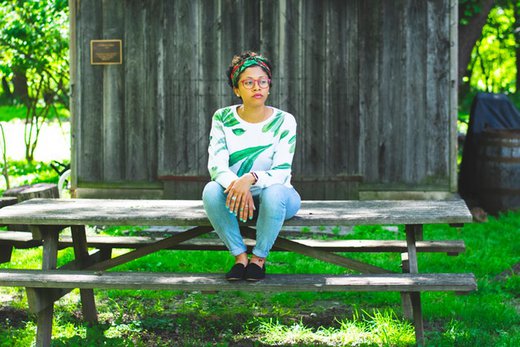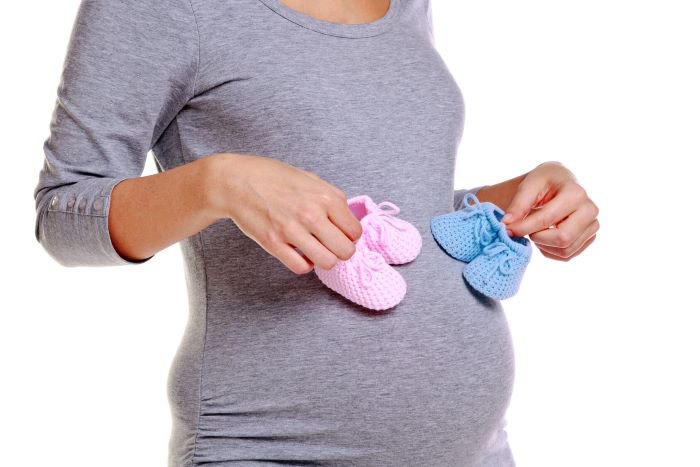Can Egg Donation Help Solve Premature Ovarian Aging or Failure?

Studies have shown approximately 1-in-100 women between the ages of 30 and 39 will experience premature ovarian aging and failure.
While commonly referred to as “premature menopause,” there’s a vast difference between the two. In a truly menopausal woman, her periods will have stopped, and conception is no longer an option. For a woman with premature ovarian failure (POF), there’s still a chance of getting pregnant naturally, albeit slim.
Thanks to innovative fertility treatment options like donor egg IVF, women struggling with POF and ovarian aging can still fulfill their dreams of having a baby.
Before women become overwhelmed by the possibility of never having children, it’s essential for them to thoroughly understand their diagnosis and the solutions available to them.
What is Premature Ovarian Failure? How is it Diagnosed?
In the simplest terms, POF is known as early-onset menopause. The average woman will begin to go through menopause between the ages of 42 and 56. With POF, this biological occurrence can start as early as 15 (although this is extremely rare). The average age women are diagnosed with POF is 27.Once POF has begun, the process can last an indeterminable amount of time. It can be within a few short months or several years, when a woman is considered post-menopausal.
Before any treatment or alternative fertility options can be discussed, your doctor will need to officially diagnose you with POF. To do so, you’ll be given blood tests to check the estrogen levels from your ovaries and the FSH/LH hormone levels in your pituitary gland. If these hormones aren’t being produced efficiently, it’s a clear sign you’re suffering from POF.
What are the Causes of POF?
For most women dealing with POF, the reason for their diagnosis is unknown. For others, there can be more concrete explanations.Auto-immune diseases, like diabetes, and genetic conditions are two of the more common reasons for premature ovarian aging. Cancer treatments like chemotherapy and radiation are other likely factors that can cause ovarian failure.
What are the Symptoms of Premature Ovarian Aging or Failure?

These include:
- Missed or irregular periods
- Night sweats/hot flashes
- Irritability or mood swings
- Decreased sexual drive
- Difficulty concentrating
- Vaginal dryness
- Headaches
- Joint stiffness
Is it Possible to Conceive Naturally with Ovarian Insufficiency?
It’s well understood natural conception relies on a woman’s ability to ovulate and release an egg. For women with premature ovarian aging and failure, trying to conceive can be more complicated.Since women with POF don’t ovulate regularly, their chances of getting pregnant naturally are slim. While not impossible, there’s only a 5 – 10% chance of getting pregnant without assistance each month.
Fortunately, the inability to conceive on your own doesn’t mean pregnancy is out of the question. Every year, women around the world use donor eggs as an ideal solution to treat their POF and create the family of their dreams.
Can a Woman with POF Get Pregnant Through Egg Donation?
If you’ve been diagnosed with POF, it can seem like the opportunity to have a child has been taken away. While natural conception is undoubtedly tricky, all hope isn’t lost. Many women have found donor egg IVF to be one of the most beneficial and successful fertility treatments following an ovarian insufficiency diagnosis.Just because a woman’s ovaries may be failing, this in no way inhibits her ability to carry a child. Through egg donation, you’ll have the chance to carry your own baby and deliver him or her into the world. A connection like this is far greater than any amount of DNA could ever be.
With the right physical and emotional support, there’s no reason you shouldn’t be able to grow your family and have the child you’ve been hoping for.
What’s Involved in the POF Donor Egg Process?
While there’s no medical process at this time to conclusively treat the infertility caused by premature ovarian aging or failure, egg donation has proven itself to be an ideal alternative. Overall, the process is much the same as it would be for other women going through the donor egg IVF process.After choosing an egg donor and having the eggs shipped to a fertility clinic of her choosing, the recipient will undergo general testing to determine her reproductive status. Using the information gathered during these tests, her doctor will prescribe a protocol of medications to stimulate her uterus and endometrial lining.
The most significant difference between a woman with POF and others during this process is her hormonal-response to these medications.
As POF is indicative of unfavorable hormone levels, IVF nurses and doctors need to be astute in managing her progress while taking medications like estrogen and progesterone. Once it’s determined her body is ready, she’ll undergo the embryo transfer in the same way any other woman would.
Pregnancies in women with POF are often considered ‘high-risk,’ but certainly not impossible.
Overcoming Premature Ovarian Failure and Building a Family with Egg Donation

With careful treatment and monitoring, alternative reproductive therapies like egg donation can be highly-effective. While the possibility of getting pregnant naturally is slim-to-none, there’s still ample opportunity to have the baby you’ve wished for.
Egg donation might not be the option you’ve dreamt about, but it’s highly successful as a treatment to infertility caused by premature ovarian aging and failure. Not only does it allow you to carry and deliver a baby of your own, but it will also provide you with something much bigger than a medical diagnosis—a family.
If you’re interested in using donor eggs to overcome premature ovarian aging or failure, our team is ready to help. Call or message us today to see if donor egg IVF is the right step for you and your family.
Categories
Latest Posts
- Pride, Parenthood and Possibility: A Guide for Gay Dads Using Frozen Donor Egg
- Victoria’s Story: Choosing Donor Egg and Beyond
- Heartbreak, jealousy, and then one ‘golden egg’. How actress Camille Guaty finally became a mom with donor egg
- Empowering Your Family Dreams: Accessing Fertility Coverage Made Simple
- Donor Egg Bank USA’s Partner Summit 2024
- Planning, Painting and Picking: A Donor Egg Bank USA Employee’s Journey to Motherhood
- Real Stories: A Path to Parenthood Through Donor Eggs
- Mental Health and Infertility 101: What You Should Know
- Mark Yourself as a Resource During National Infertility Week®
- 5 Reasons It’s Not Your Fault You’re Not Pregnant
Comments
Share Your Thoughts